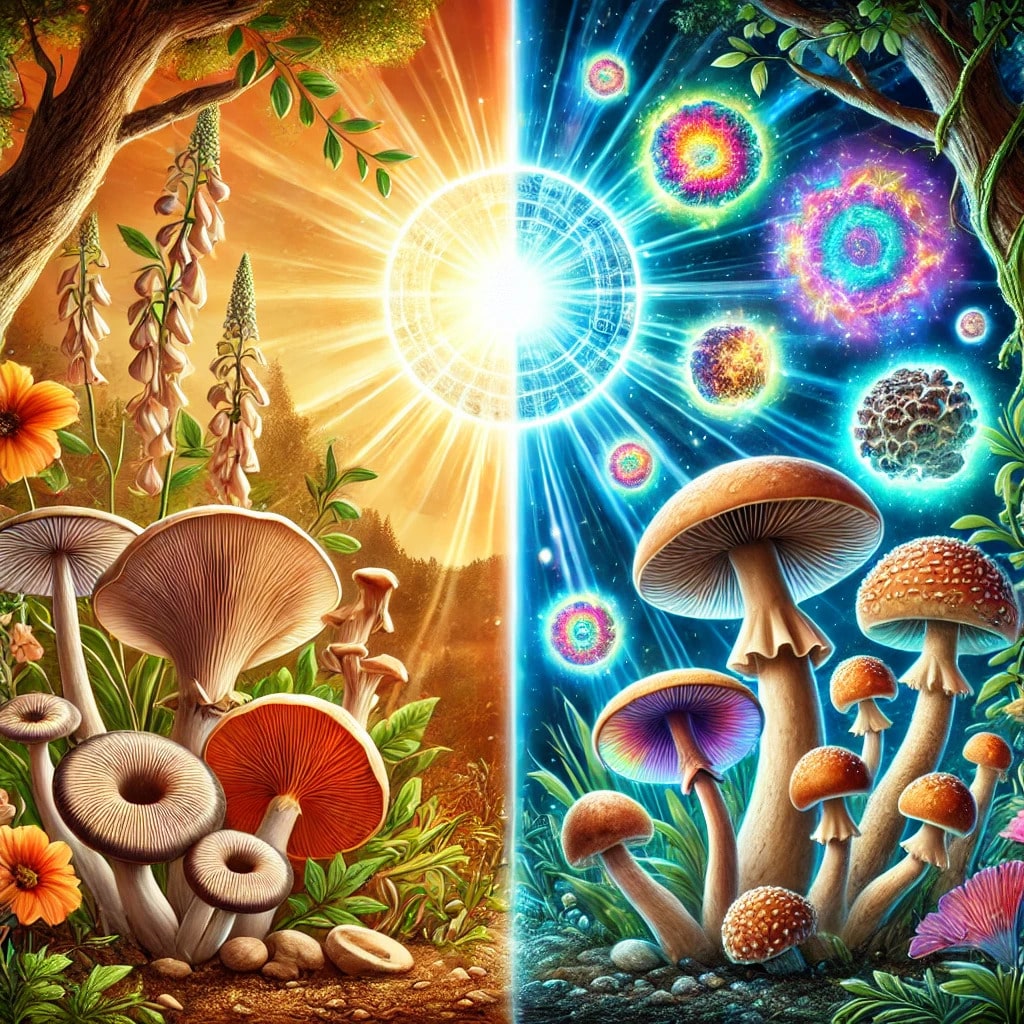
There has been an increased interest in recent years in the positive effects mushrooms can have on health. There are many different types of mushrooms that you should not mix up. For example, there are medicinal mushrooms and magic mushrooms, and they are very different from each other. Below you can read what the differences are and what you might use them for.
Mushrooms are the fruiting body of a fungus. The fungus grows underground (this is the mycelium) as an extensive network of filaments. To reproduce, the fungus forms the mushroom. This is similar to a flower at a plant. This fruiting body produces the spores, which can then spread.
This applies to both magic mushrooms, as well as the medicinal mushrooms. But in terms of effects on humans, there are important differences. Medicinal mushrooms are known for the large amount of active substances they contain, such as antioxidants, polysaccharides and terpenes. But these mushrooms have no mind-altering properties. They are simply very healthy to eat or to take as a supplement.
Examples of these mushrooms are:
Medicinal mushrooms can be eaten plain or used as a supplement. You can use them to support your health.
Medicinal mushrooms are very interesting. They have antibacterial and antifungal properties, have anti-inflammatory effects, support healthy digestion and can help with depression, diabetes and immune system complaints (see research 2021 on PubMed)
Some of these mushrooms, such as Lion’s mane, are known to help protect the nervous system and brain. Lion’s mane contains two substances, hericenones and erinacins, that may promote brain cell growth (research published on PubMed, 2019). It is possible that these substances may even help protect against neuro-degenerative diseases such as Alzheimer’s disease and dementia. Many people also use the supplement for depression and anxiety.
A special property of medicinal mushrooms is also their adaptogenic effect. That means they can help regulate the body’s stress response, including the production of cortisol. In an study from 2014, the 18 male participants were given Cordyceps and Rhodiola. They experienced less stress and fatigue during high-altitude training after 2 weeks, compared to a placebo group. In a similar study in cyclists found that Reishi and Cordyceps supplements could help reduce stress-related damage from overtraining.
Medicinal mushrooms have been used for thousands of years because of their positive effects on health. They can be used for various complaints, such as problems with digestion, resistance and energy.
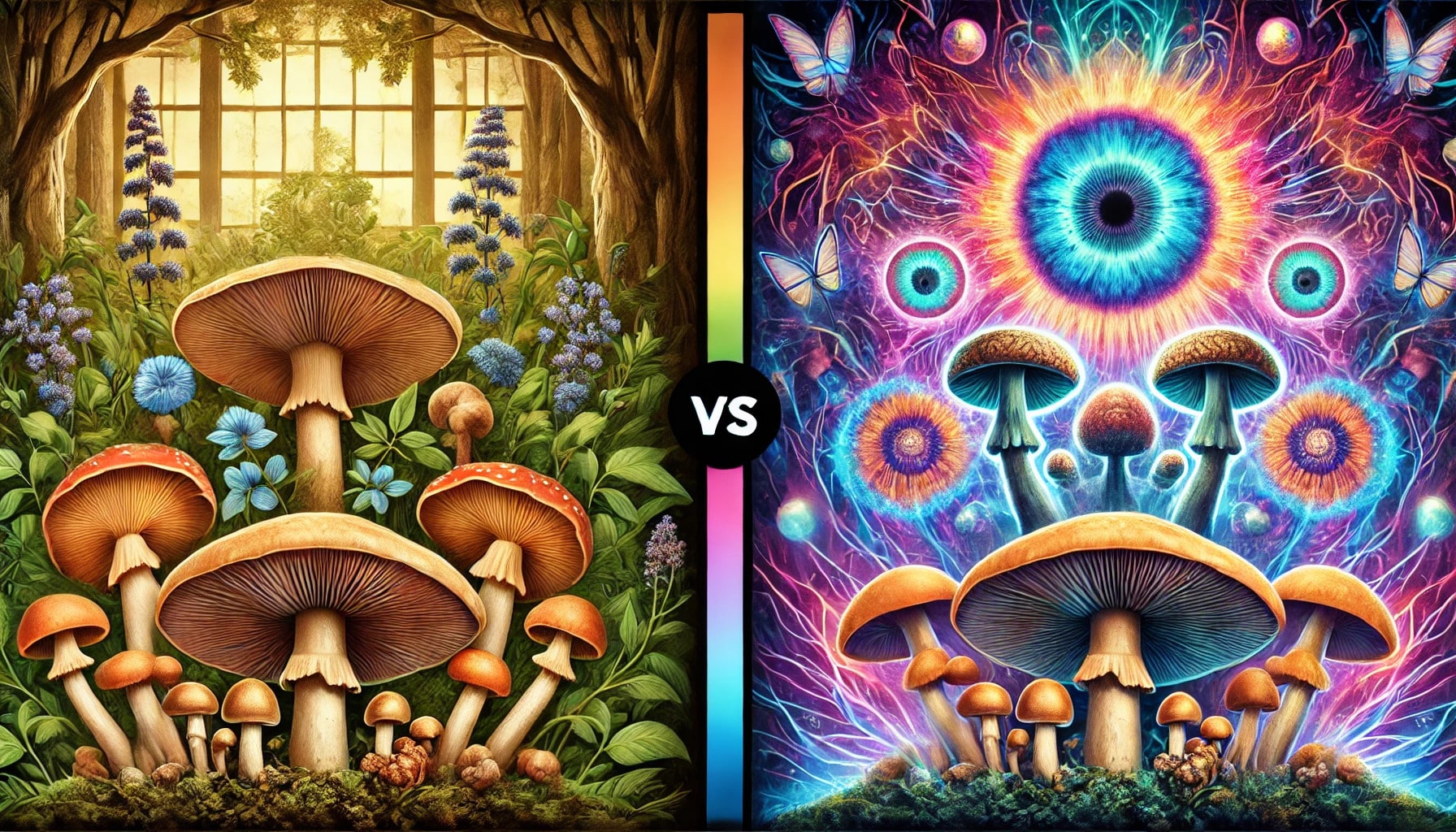
Mushrooms are also mushrooms, but with very different properties. Mushrooms, also called magic mushrooms, contain psilocybin. This is a substance that is converted into the psychoactive substance psilocin after consumption in the body. The mushroom species that contains the most psilocybin is Psilocybe. More than 200 species of mushrooms have already been discovered. Psychoactive mushrooms affect the brain. Thus, they are not used for their beneficial effects on the body, but for their effects on the mind.
The effects vary from person to person and from mushroom species to species. Other factors also come into play, such as the experience you already have with mind-altering substances, your digestion and even the environment (the set and setting). Shrooms enhance your emotions and senses. They cause hallucinations, this is called tripping. The following effects may be experienced:
There may also be physical effects, such as dry mouth, nausea, sweating and increased heart rate and blood pressure. During a pleasant trip, you feel exhilarated, euphoric and connected to others and the world around you. Sometimes people experience making contact with higher realms, extraterrestrials or visiting another dimension.
In general, magic mushrooms are a safe drug. Yet they can also have negative effects. This can happen if you have what is called a bad trip, which can happen if you take too high a dose or if you are already uncomfortable before the trip. Then you may suffer from anxiety, paranoia or aggression. Therefore, it is also always wise to make sure there is a trip sitter present, who can help you regain your composure or give you a trip stopper.
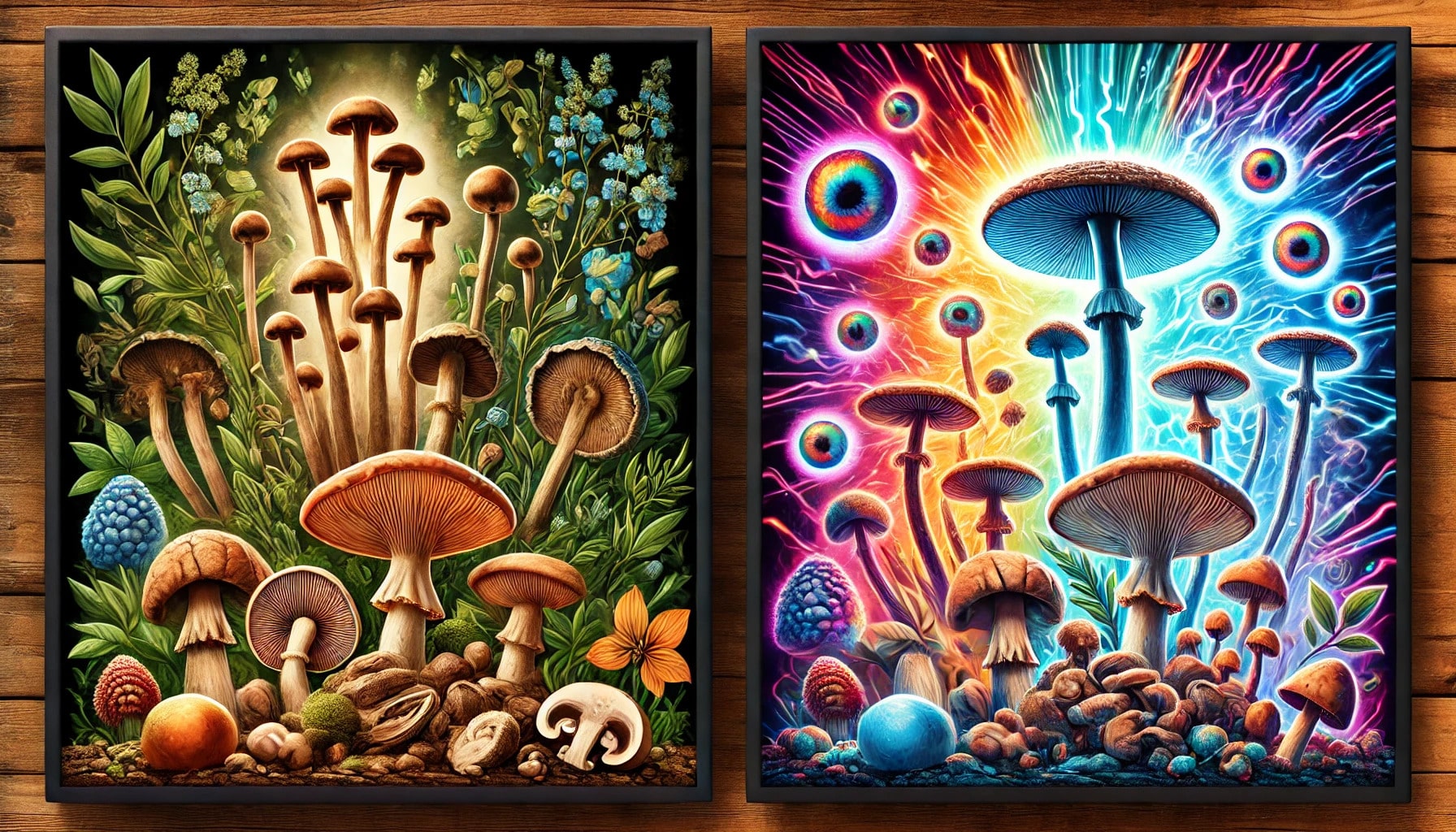
Thus, although medicinal mushrooms and magic mushrooms are both mushrooms, they have very different properties. The first one you use for your mental and physical health. You can take them daily as a supplement (as a powder, capsule or extract).
Mushrooms are used for very different reasons and have very different effects. But beyond recreational use, these mushrooms can also be useful for health. Much research is being done on the potential of magic mushrooms for mental disorders, such as depression, PTSD and addiction. And there are already modest successes in doing so, according to research, published on Science Direct (2017). However, be careful when using magic mushrooms, especially if you suffer from mental disorders, such as schizophrenia, depression or anxiety.
On top of that, you can enjoy the benefits of magic mushrooms in another way. You don’t have to take a full dose; you can also microdose. You then take a very low dose (one-tenth of a normal dose). This dose has a subtle effect on the brain, allowing you to notice positive effects on such things as your mood, concentration, creativity and energy. Here you can read more about microdosing.
Research into the effects of medicinal mushrooms and magic mushrooms is still ongoing. Although there have already been positive results, it is important to realize that not everything is yet clear about the effects on the human body. If you want to use these supplements, always seek the advice of your doctor, especially if you are on medication. Mushrooms can affect how your medications work.
This blog is intended as a source of information and not medical advice.

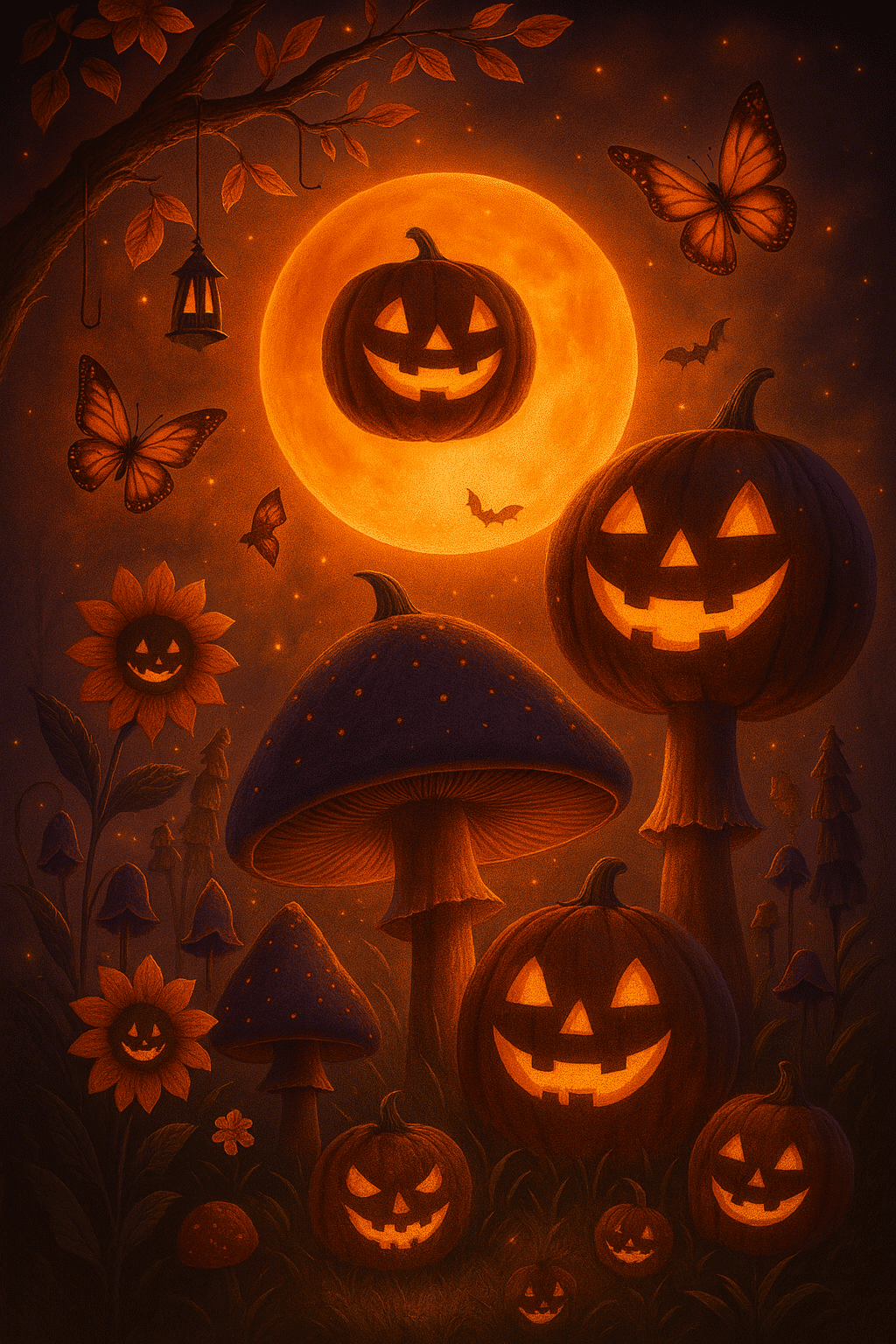
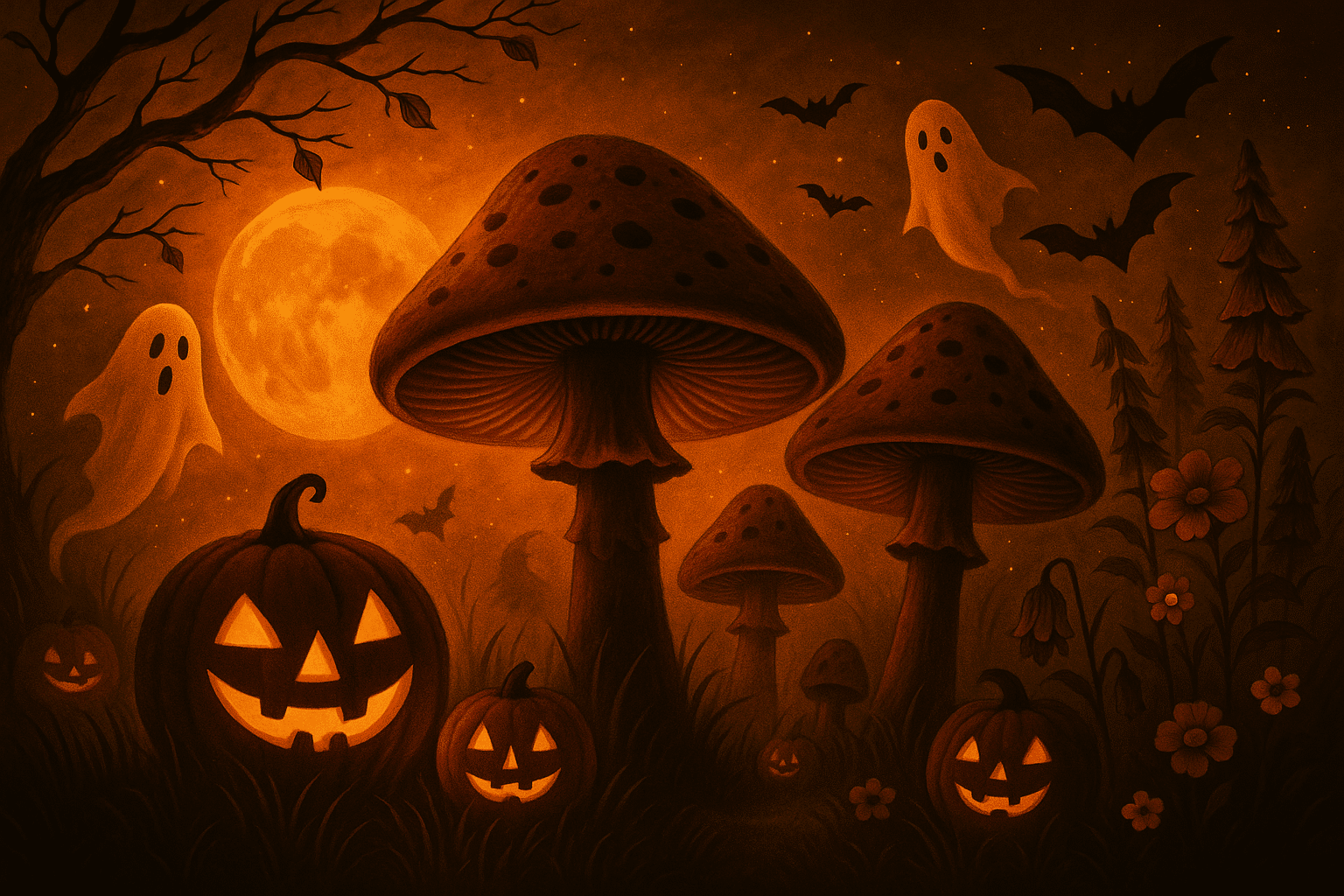
Valid from Oct 21 to Nov 2, 2025
Use the code below at checkout to receive 15% off your entire order.

